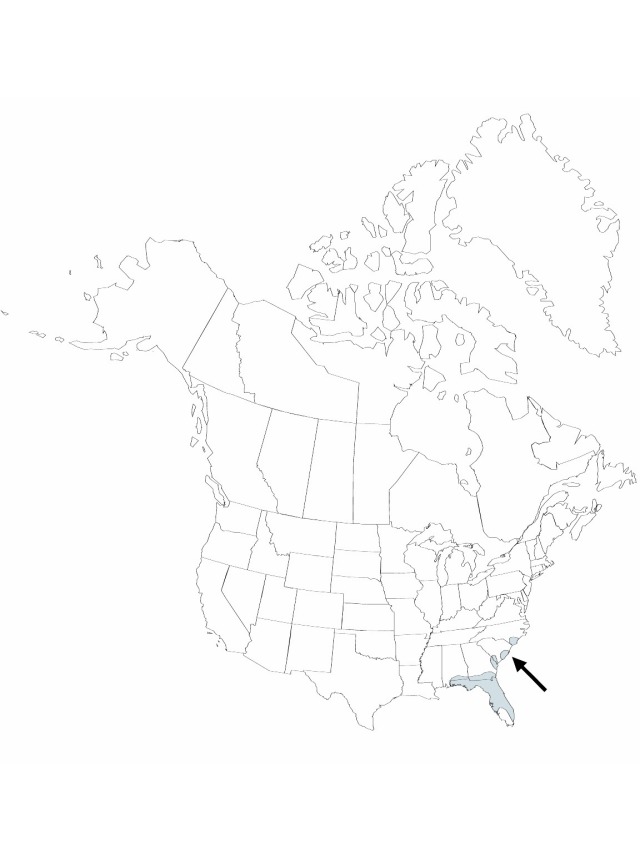Lachnocaulon minus
Flora of the Southeastern United States 235, 1328. 1903.
Herbs, short-lived perennial, solitary or cespitose, forming low domes of rosettes, 6–15 (–20) cm. Leaves linear-triangular, 2–4 cm, apex narrowly acute to subulate. Inflorescences: scape sheaths shorter than principal leaves; scapes filiform, 0.3–0.4 mm thick, 4–5-ribbed, pilose from base to apex, with ascending hairs; mature heads dull gray-brown, globose to short-cylindric, 3–4 mm wide; receptacle copiously hairy, partly obscuring flowers (old heads may lose some hairs); involucral-bracts soon reflexed, pale to dark-brown, mostly ovate or broadly oblong, 1 mm, apex broadly acute, distal margins pilose, hairs translucent, capitate, abaxial surface distally pilose, hairs translucent; receptacular-bracts pale-brown to chestnut-brown, broadly spatulate or pandurate, concave, 1 (–1.5) mm, apex rounded or obtuse, abaxial surface pilose toward apex, hairs translucent; Staminate flowers: sepals 3, chestnut-brown, base greenish, spatulate, blade concave, 1–1.5 mm, apex rounded or obtuse, abaxial surface pilose toward apex, hairs translucent; androphore yellow-white, narrowly obconic, as long as sepals, glabrous, rarely with apex hairy, hairs club-shaped, short; anthers 3, appendages 3. Pistillate flowers: sepals 3, pale, spatulate, concave, 1–1.5 mm, apex obtuse or short-acuminate, abaxial surface apically with translucent hairs; gynoecium 3-carpellate; stylar column pale, apex 3-cleft, appendages 3. Seeds deep clear brown, ellipsoid, 0.5 mm, apex apiculate, body longitudinally low-ribbed, ribs pale, transverse striae fine.
Phenology: Flowering summer–fall.
Habitat: Sands and peats of pond edges, ditchbanks, lake shores, drawdowns or moist exposed seeps
Elevation: 0–200 m
Distribution

Ala., Fla., Ga., N.C., S.C.
Discussion
The favorite habitat of Lachnocaulon minus is the fluctuating shores of karst ponds where it may be aspect dominant along the edge of the maximum pool.
Selected References
None.